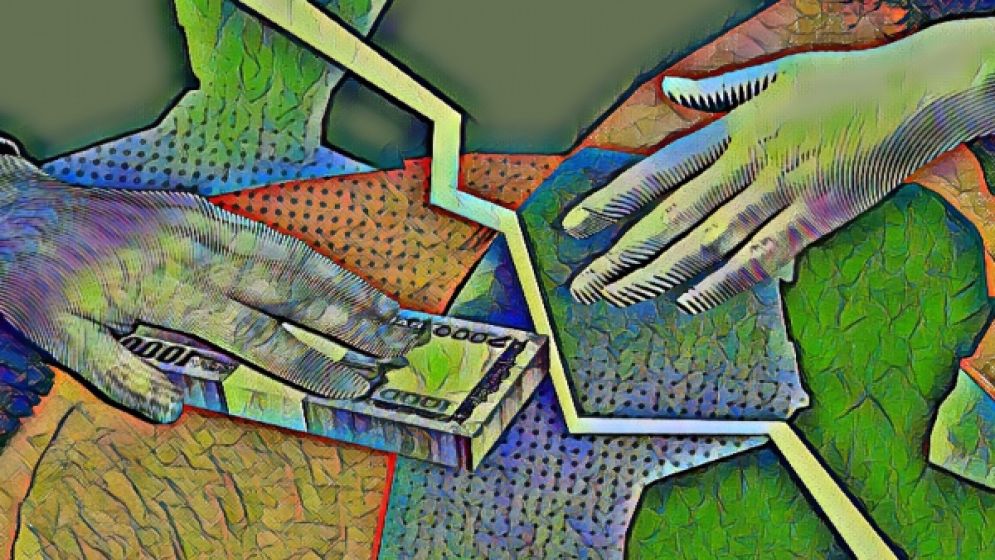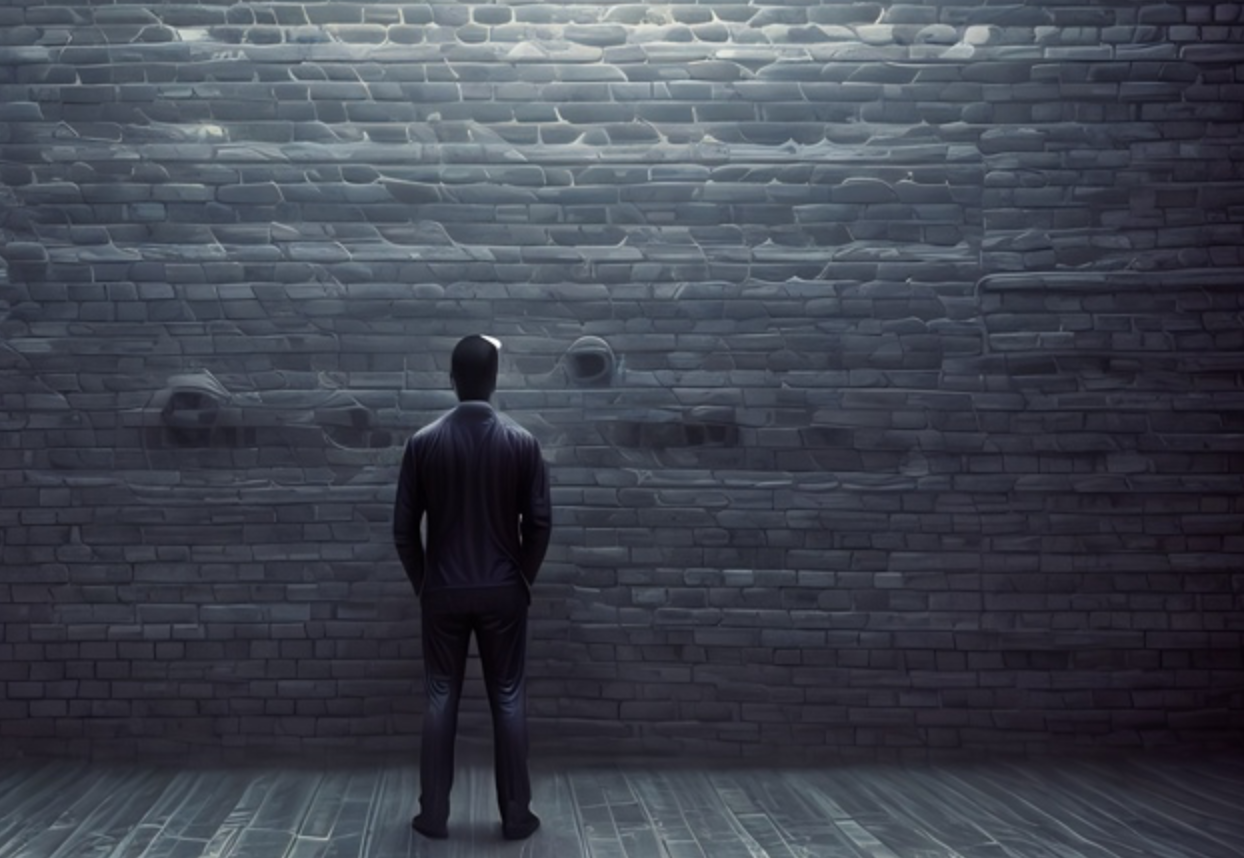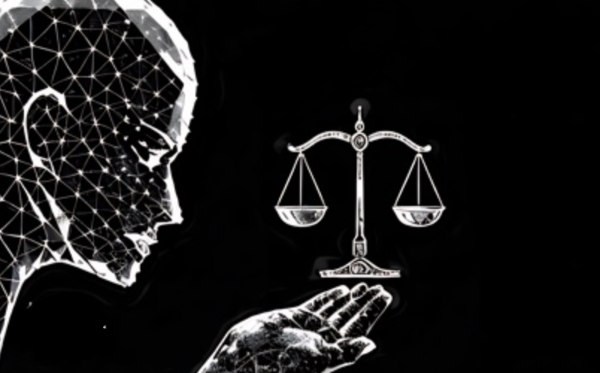Greed is half the story…Bangladesh’s unchecked corruption is rooted in somewhere else

In Bangladesh, when the topic turns to corruption, tender manipulation, or land grabbing, we tend to skim the surface.
We toss around familiar phrases: “poor governance,” “lack of transparency,” “nepotism.” These words appear in donor-funded policy papers and PowerPoint decks presented in air-conditioned seminar rooms.
But what often goes unspoken—and what I’ve tried to highlight in my recent writing—is the deeper moral rot beneath the numbers and jargon.
Yes, every country has corruption. Bribes change hands, contracts are rigged, public offices abused. But there’s a difference between a country where corruption happens and one where the state has been structurally hollowed out by thieves.
In the latter, kleptocracy isn’t an unfortunate byproduct—it’s the operating system.
Bangladesh today is not merely corrupt. It is ruled by a political economy of plunder, underpinned by a fundamental disdain for human life.
Without a deep-seated hatred for the ordinary citizen—an inherited misanthropy not unlike that of the colonial administrators who once ruled these lands—it would be impossible to organize the level of organized looting that persists.
It would not be possible to deploy the state apparatus to kill 1,000 to 1,500 people just to preserve a system of violent extraction.
Unless we name this foundational cruelty for what it is, we will get nothing more than what we’ve been getting: five-star conferences on “accountability” sponsored by the World Bank, glossy reports from TIB, and yet another round of memorized “best practices” that die on arrival.
Let me share a personal episode that helped crystallize this realization.
Some years ago, I found myself involved in management reform at a hospital—work I naively considered meaningful. I poured myself into it. I developed systems, tested small innovations, solved petty bureaucratic feuds. I spent more time thinking through that work than I had on most personal relationships.
Eager to share and learn, I began discussing this experience with colleagues, especially those also linked to hospital management. What I received in return was bemused indifference.
Some smirked, as if I were describing a child’s school project. Others chuckled and introduced themselves in mock seriousness as “the chief clerk”—the implied message being: real power lies in blocking change, not enabling it.
But when the conversation shifted to surgical techniques or treatment protocols—anything that could boost a CV or increase private earnings—their eyes lit up. Suddenly, it was all seriousness and engagement.
In their world, anything that did not lead to personal profit, career advancement, or material gain was irrelevant. Worse, it was laughable.
So why, I asked myself, was managing a hospital—making it work better, making it save more lives—such a joke?
The answer is chilling in its simplicity: because the lives being saved are not considered valuable. The system does not collapse under the weight of dysfunction; it floats comfortably on the assumption that most people’s lives don’t matter.

The harsh realization
The realization hit me slowly: the very act of working on a public initiative without a private payoff was seen as laughable, even childish.
My peers didn’t take me seriously because I wasn’t trying to leverage that work for career advancement. Discussing rare procedures or disease management gets you prestige.
But talking about how to make sure a rural hospital actually has life-saving drugs? That’s “cute,” even foolish—best kept to TED Talks or donor-funded side panels, not real life.
This attitude is not limited to the medical field. Recently, a viral Facebook clip circulated about Professor Hasanuzzaman, the man who dared to investigate the notorious PSC question leak. He pursued Abed Ali—the alleged kingpin of the syndicate—with rare courage.
What did he get for it? Ridicule. Assault. Isolation. He was labeled “crazy” for taking on corruption head-on.
In Bangladesh, if saving lives in a public hospital is trivial, if exam transparency is a joke, and if serious conversation about constitutional reform or rural infrastructure is met with yawns—then what, exactly, is serious?
The answer is chillingly clear: what matters is not the issue, but the monetization of the issue. The only question that gets serious attention is: how can we make money off this?
This is not merely a cultural defect—it is a systemic inversion of institutional logic. Institutions are built on habit. Over time, people perform certain actions—or avoid them—not because of constant enforcement, but because norms take root.
As Nietzsche observed in On the Genealogy of Morality, internalized discipline eventually becomes automatic.
But in Bangladesh, the system punishes those who serve the public and rewards those who loot it. There is no economic logic for doing the right thing. There is no social recognition for public-minded work. Instead, corruption is aspirational. Make money—no matter how—and you’ll be celebrated. Until, perhaps, you get caught.
This is the architecture of reverse incentives.
It has two inevitable consequences. First, work that serves the public doesn’t happen. Second, the rare individuals who do take initiative are left unsupported, ridiculed, and eventually isolated.
Often, they slip into what I call “main character syndrome”—a messiah complex that breeds arrogance and alienates allies. They become so detached from institutional reality that their good intentions collapse under their own egos.
Either way, the outcome is the same: the work doesn’t get done. Nothing changes. Except the latest luxury apartment skyline, the newest mall, and the growing distance between the country's aspirations and its moral core.
If Bangladesh ever wants to reverse this decay, it must start by reversing the incentive structure—economically, socially, and culturally. Until then, those who work for the public good will remain figures of ridicule, while the looters pose as leaders.

Where lies the root?
The question naturally follows: how did this grotesque inversion of incentives take root in Bangladesh? Why is honest work punished and exploitative behavior so richly rewarded?
The answer lies in history—and in design. Institutions are not apolitical machines. They are constructed with intent, to serve particular roles in a society. And in formerly colonized nations like Bangladesh, that role was never service—it was extraction.
We didn’t inherit functioning public institutions; we inherited instruments of control. Colonial authorities did not build hospitals to heal the poor or bureaucracies to empower citizens. They built systems to extract value—land, labor, taxes, raw materials.
The most "efficient" administrator was the one who could extract the most. The legacy of that logic persists.
Think of Colonel Kurtz from Heart of Darkness—a man exalted not in spite of his brutality, but because of his ability to produce ivory. This is the archetype of colonial success: not the civil servant, but the extractor.
That template was handed down across empires. From the British to Pakistan, and from Pakistan to the post-1971 ruling classes. Since 2008, under the Awami League, this structure has deepened—not just in scale, but in psychological integration. India’s growing influence has only added a new layer of regional geopolitics to an already calcified system.
To understand this fully, we must return to thinkers like Albert Memmi and Frantz Fanon, who showed us that colonial systems of extraction depend not just on guns and laws—but on ideas.
You cannot run an empire of looting unless you first invent an anthropology of inferiority. You must convince yourself—and those you exploit—that these are not people, but a lesser species. “Sub-humans.” That philosophy is as essential as the train tracks and tariffs.
What makes the postcolonial tragedy more perverse is this: over time, the colonized internalize the logic of the colonizer. The whip gets passed down, but the ideology remains intact.
Today in Bangladesh, many of our elites don’t just reproduce the old colonial behaviors—they do so with pride. As I’ve argued before, the two main engines of our economy—garments and remittances—function precisely because Bangladeshi lives are cheap.
If a factory worker dies in a fire or a migrant laborer is beaten to death abroad, it barely registers as a blip in the news cycle. Their disposability is priced into the system.
This is the real national ethos. Not “Sonar Bangla,” but a bloodless calculation: how much value can be extracted from the Bangladeshi body before it breaks?
And so, when someone enters government or public office, the question is no longer whether they will loot, but how quickly and how much. Manipulating tenders, selling influence, lobbying for kickbacks—these are not deviations.
They are the expected moves of anyone who finally gains access to the controls of the machine. To serve the public would be to go against the very grain of the system itself.
This is not just about corruption. It is about design. It is about a nation that has never truly reimagined its institutions as tools for dignity, justice, or equality.
Instead, they remain tools of organized plunder—sometimes managed by foreign masters, sometimes by local ones. But always with the same result.
Until this foundational system of dehumanization is named and dismantled, all talk of “governance reform” or “institutional strengthening” will remain performative—ritual acts in a theater built on extraction.

Looking at a deeper decay
If corruption in Bangladesh were simply about getting rich, there might be a way out. Raise civil service salaries. Introduce tighter audit systems. Build transparent, independent watchdogs. In theory, a web of institutional checks and balances could correct the distortions.
But that is not what we’re dealing with.
At its core, Bangladeshi corruption isn’t about greed—it’s about contempt. It’s about a deeply embedded, culturally normalized hatred for the people of this country. And no law, policy, or external mechanism can fix that.
Here’s the truth no one wants to say aloud: the Bangladeshi elite, broadly speaking, do not believe in the worth of Bangladeshi lives. The people are seen not as citizens, but as disposable. As burdens. As insects to be swatted away when they demand dignity.
Poet Daud Haider once captured this dehumanization perfectly, writing from the perspective of the palace elite: “Why are they born? / They are the curse that hinders our happiness.” That isn't poetry. That is policy.
It explains why, once someone ascends into a position of power, “serving the people” becomes laughable to them—an eccentric delusion rather than a public duty. Their mission shifts to a far darker purpose: how best to extract from the flesh and blood of those below them.
In this moral vacuum, the government becomes not a guardian of the public good but a cannibalistic machine, designed to consume the very population it is meant to protect.
No number of donor-sponsored reforms will resolve this. Because the rot is not just in the system—it’s in the mindset. Unless we confront the toxic anthropology that reduces citizens to commodities and human life to cost-benefit calculations, nothing will change.
Worse still is how this logic has been internalized by the public itself. Decades of elite abuse, humiliation, and abandonment have convinced many Bangladeshis that they are inherently inferior.
That they are unworthy of justice, of fairness, of better. This self-hatred has become a social norm—systematically taught, relentlessly reinforced, and politically weaponized.
But a society built on self-loathing cannot rise. And a people taught to distrust their own goodness will never believe they deserve more.
This, to me, is the defining political challenge of our time: not just to critique the dehumanization at the top, but to dismantle the culture of cynicism it breeds below.
Reform will not begin with another round of technical fixes or IMF frameworks. It must begin with a radical political project—a collective reimagining of what it means to be Bangladeshi, rooted in dignity, not shame.
We must abandon the idea that the people are the problem. The problem is the system that taught them to hate themselves. The path forward requires more than resistance—it demands optimism. A belief that this country can be built by those who’ve been discarded by it.
Only then will the project of democracy, accountability, and justice have any meaning at all.
—
Mikail Hossain is a researcher and analyst

